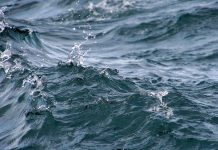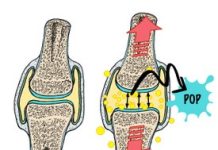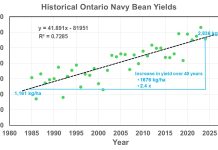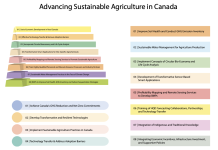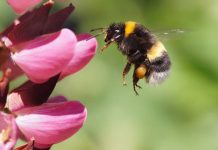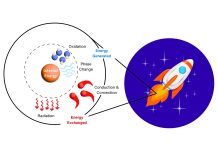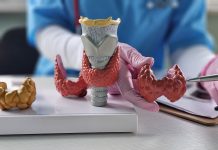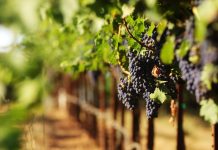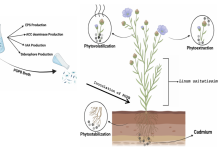Open Access Government produces compelling and informative news, publications, eBooks, and academic research articles for the public and private sector looking at health, diseases & conditions, workplace, research & innovation, digital transformation, government policy, environment, agriculture, energy, transport and more.
Home 2025
Archives
Adapting effective sexual assault prevention for online delivery
Can an in-person intervention that decreases young women’s risk of sexual assault maintain its effectiveness when adapted for online facilitation? Our recent research set out to answer this question.
What does it mean to ‘know’ something in the age of AI?
Stephanie Schneider from SUNY Old Westbury examines how Artificial Intelligence is reshaping our understanding of knowledge and challenging traditional concepts as it becomes increasingly integrated into our daily lives.
Climate and hydrologic change across the Great Lakes region and other transboundary waters
Scott Steinschneider, M. Altaf Arain, Paulin Coulibaly, Andrew Gronewold, and Gail Krantzberg, explore climate and hydrologic change across the Great Lakes region in North America and other transboundary waters.
Joint sounds, how do they arise?
A key aspect of joint manipulation is the audible sounds that may occur during manipulation, which are believed to result from a phenomenon known as tribonucleation. Dr Rob Sillevis from.
Bean breeding at the University of Guelph: Past and present
Examine bean breeding at the University of Guelph, both past and present, conducted by its Department of Plant Agriculture.
Advancing precision agriculture for sustainable farming in Canada
Canada aims for a more sustainable and environmentally responsible agricultural sector, with precision agriculture playing a crucial role, according to Professor Aitazaz A. Farooque and Professor Qamar U. Zaman.
Daily cigarette smoking research from the Global Flourishing Study
Sung Joon Jang from the Institute for Studies of Religion, Baylor University and Pepperdine University, shares some of the new findings about daily cigarette smoking from the Global Flourishing Study.
Berry industry in Alberta: Exploring the processing system
Aleksandra Tymczak studies the berry industry, an expanding industry in Alberta’s agricultural system. Here, she discusses the current capacity for processing berries as well as the challenges and emerging opportunities to develop the berry processing system.
Unleashing the potential of biology in mining and enhanced rock weathering by bridging the...
Martin Van Den Berghe, CEO of Cytochrome, along with Jayme Feyhl-Buska and Paul Reginato of Homeworld Collective, explore the potential of biology in mining and enhanced rock weathering by bridging the gap between academia and industry.
A crisis in STEM education: We must fund STEM education research focused on interdisciplinary...
Reductions in STEM education funding occur at a crucial time when interdisciplinary problem-solving is vital for innovation. Nancy Butler Songer highlights the importance of Iterative Science and Engineering (ISE) programs, where students engage in cycles of designing and testing solutions to regional problems.
The role of research and knowledge creation in decolonization
Geraldine Balzer from the University of Saskatchewan emphasizes the importance of reciprocity and relationality in research with Indigenous communities, advocating for collaborative knowledge generation that respects community values and involves extended engagement.
The decline of volunteering in the U.S explained
Rebecca Nesbit, Ph.D. from the University of Georgia, and Laurie E. Paarlberg, Ph.D. from Indiana University – Indianapolis, initiate a discussion on the decline of volunteering in the United States. They emphasize the significance of this trend and suggest ways to address it.
Male victims of intimate partner violence: Insights from twenty years of research
Denise A. Hines, Ph.D., Enochs Endowed Professor of Social Work at the College of Public Health, George Mason University, explores the often-overlooked issue of male victims of intimate partner violence (IPV).
Power generation game changers: Metal fuels to propel our future
Dr Michelle Pantoya of Texas Tech University examines the advantages of metal fuels compared to traditional hydrocarbons, emphasizing their potential importance in future energy generation.
Rethinking papillary thyroid cancer: Why “low risk” isn’t always low impact
Oliver Bathe, Professor of Surgery and Oncology at the University of Calgary and CEO of Qualisure Diagnostics, urges us to rethink papillary thyroid cancer, noting that “low risk” isn’t always synonymous with low impact.
Sustainable strategic management: Toward flourishing circularity
Discover how Sustainable Strategic Management (SSM) enables flourishing circularity through enterprise-level transformation.
Horticulture: Hormonal therapy for grapevines
Jim Willwerth, Assistant Professor and Researcher at Brock University, Canada, in this horticulture discussion, delves into what we need to know about hormonal therapy for grapevines, including plant growth regulators.
Chronic pain and healthcare education in Canada: Bridging the divide
Hansel Lui from the Michael G. DeGroote Institute for Pain Research and Care discusses inadequacies in healthcare education regarding chronic pain management in Canada and opportunities to close these gaps.
Tracing evolution’s blueprint: Minimal genome life and the engineering of synthetic endosymbiosis
Roksana Riddle and Christopher H. Contag from Michigan State University discuss the concept of endosymbiosis, how it has evolved, and present strategies to engineering endosymbionts and their applications in developing innovative therapies.
Microbially-assisted phytoremediation of cadmium
Arpita Bose, PhD, Associate Professor and Nida Zainab, PhD Researcher at Washington University in St. Louis, guide us through the process of microbially-assisted phytoremediation of cadmium.



